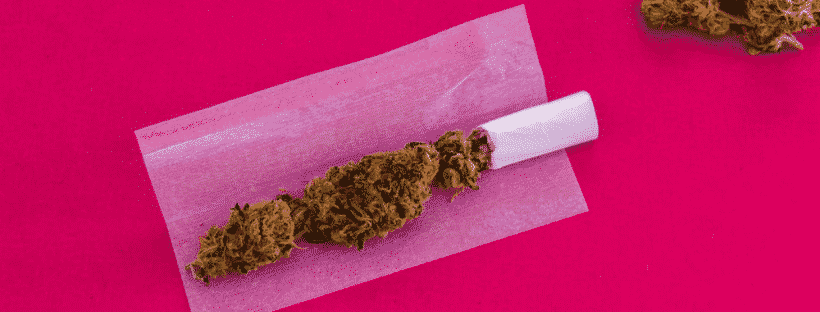Anxiety and stress are common issues that can affect anyone at any time. Results from a recent poll found that 41% of Canadians report struggling from anxiety, with a third being formally diagnosed. Although there are many medications and treatments for reducing the symptoms, these are often timely, expensive, and sometimes have negative side effects. As such, many people seek out natural remedies for reducing anxiety and stress.
Many people are impacted by severe anxiety disorders such as generalized anxiety disorder, social anxiety, PTSD, OCD, and panic disorder. These disorders can have severe consequences, causing people to struggle with their daily lives and even impacting their jobs. However, even the average adult often suffers from stress and anxiety due to things like finances, relationships, career and educational responsibilities, and even daily life tasks.
Fortunately, there are many ways to treat anxiety which don’t require a lot of time or money. There are numerous natural, herbal supplements out there which have been shown to reduce anxiety. There are also natural ways to relieve the symptoms of anxiety- even some you can do from home. Here are 10 natural remedies for reducing anxiety and stress that anyone can benefit from.
1. Try Marijuana
It might come as a shock to some people that marijuana can actually help reduce anxiety. Despite its bad reputation, there’s a lot of research to show that many people successfully relieve their stress and anxiety with just a small amount of marijuana.
Unlike traditional anxiety medications, marijuana is completely natural, coming solely from a plant product. Marijuana contains numerous cannabinoids which interact with your body and mind to provide a host of medical benefits. Many people use marijuana for things like chronic pain, migraines, and even cancer, but it’s also very beneficial for your mental health.
A 2018 study discovered that using marijuana can significantly reduce ratings of anxiety, stress, and depression for users. And while some might be turned off at the concept of smoking marijuana regularly, it turns out it doesn’t take much. Just a couple of puffs of marijuana was enough to rapidly reduce stress and anxiety in users.
In Canada, it’s now legal to buy marijuana online and reap the many medical benefits it can offer. Those who don’t enjoy smoking can even choose to use a vape pen or vaporizer instead of smoking it. Some products should be avoided- for instance, high THC strains may worsen anxiety for some users. However, most users find cannabis extremely helpful in helping with the symptoms of anxiety and general stress.
2. Use CBD Products
If using marijuana isn’t for you, there is a natural way to get the same mental benefits without having to get high. CBD has quickly become extremely popular as a non-psychoactive alternative to marijuana. CBD comes from cannabis and hemp plants, but unlike THC (the main psychoactive component in marijuana) it won’t make you high or cause any unwanted side effects.
A study on using CBD for anxiety and sleep found that taking it daily could help significantly. After using 25mg of CBD a day for a month, subjects had significantly less anxiety and also got better sleep. Another study on using CBD for social anxiety found that a single 600mg dose could reduce symptoms of anxiety within around an hour, helping users significantly.
CBD can also help with many of the causes and symptoms of anxiety by relieving pain, improving sleep, and reducing stress. It’s also been reported to have no significant side effects as well as being non-addictive and impossible to overdose on.
There are many different kinds of CBD products you can use. CBD Tincture can be applied directly under the tongue for effects within around 20-30 minutes. You can also use a disposable CBD vape pen for fast-acting effects. Alternatively, you can try out edible products such as CBD chocolate bars. All of these provide great natural ways to relieve symptoms of anxiety.
3. Exercise Regularly
Exercise has quickly become one of the most recommended natural remedies for reducing anxiety and stress. The ADAA notes that by releasing endorphins, physical activity can help instantly and significantly reduce anxiety and stress. Many doctors even recommend exercise over medications due to the powerful natural relieving effects it can have for stress and anxiety.
There’s a huge amount of research showing the numerous benefits that exercise can have for stress and anxiety. It can make users feel happier and more confident in themselves while also reducing blood pressure, improving sleep, and helping counteract other contributing factors to anxiety.
What’s more, you don’t have to completely exhaust yourself to get the benefits. The Centers for Disease Control and Prevention recommend around 30 minutes of moderate to high-intensity exercise for 5 days a week. Even those with busy schedules will see significant benefits from exercising around 3 times a week.
There are many ways you can exercise. Some people might decide to cycle to work whereas others might prefer to do 30 minutes of yoga in the morning. Getting a gym membership or going for a jog a few times a week can also help. Whichever way, it’s an incredibly powerful way to naturally reduce stress and anxiety.
4. Get More Sleep
One of the most important factors when it comes to counteracting anxiety and stress is getting enough sleep each night. Those who don’t get enough sleep will often find themselves fatigued, cranky, and more easily stressed out. It’s also a catch-22 as poor sleep can contribute to anxiety and anxiety can contribute to insomnia.
So how much sleep should you be getting? One study found that those who sleep less than 8 hours a night are more likely to suffer from anxiety and depression. As such, you should be aiming to get 8 hours every night at a minimum.
Although many users may find it hard to sleep, there are numerous things you can do to help yourself sleep better. Sticking to a regular sleep schedule is especially effective as it will train your body to fall asleep at the same time each night. You should also avoid screens such as TV, mobile phones, and laptops from around 30 minutes before you go to sleep.
Getting better sleep will have huge all-around benefits for your stress levels. It can improve your health and you’ll wake up much happier when you get a good night’s sleep. Although it can be hard for users with severe anxiety, easing yourself into a better sleep pattern will make a world of difference.
5. Start Meditating
If you’ve never tried meditating, it might be time to start. In simple terms, meditation is a practice which involves clearing your mind and inducing a more positive and calm mental state. While many people may have a hard time believing it can be effective, there are actually studies showing it can help reduce anxiety and stress.
Research suggests that regular meditation can help reduce anxiety, stress, and depression. Mindfulness meditation has been found to be particularly effective. A 2018 study found that even a single 1-hour session of mindfulness meditation resulted in a clear reduction in anxiety. They also found that meditation reduced stress on the arteries and could potentially prevent the risk of cardiovascular problems.
Even just meditating for around 10-15 minutes a day at home can help you clear your mind and reduce stress and anxiety. There are many ways to do this- you may want to look up mindfulness meditation guides online or even on YouTube. You can also take a meditation class to learn how to control your breathing, eliminate negative thoughts, and induce a positive mood with meditation.
6. Drink Herbal Teas
Even the things you drink can have an effect on your anxiety. Drinks that are high in caffeine and sugar can often worsen anxiety, so it may be best to avoid drinking frappes and cappuccinos. However, there are some drinks which can help. For instance, herbal teas have been found to help reduce anxiety.
There are many different kinds of teas which have incredible health benefits, including improving your mood and mental health. For instance, a 2016 study found that drinking Chamomile Tea can help reduce the symptoms of anxiety over time. Similarly, Ashwagandha Root Tea was found to reduce stress and anxiety by a whopping 44 percent.
The most popular tea for reducing anxiety is Green Tea. Research shows Green Tea can soothe anxiety while also improving brain function and memory. These teas are easy to find in stores and even drinking them once a day can have significant benefits over time for your physical and mental health.
7. Spend Time Outdoors
Sometimes all it takes to reduce stress levels and relieve anxiety is spending some more time outdoors. One of the major causes of mood disorders is spending extended amounts of time indoors, either in the house or in your workplace. Getting out in nature can have a surprisingly positive effect on your mood.
Research from the University of East Anglia found that spending more time in nature can have huge benefits. Exposure to green spaces was found to reduce stress and blood pressure, as well as reducing the risk of various health problems such as cardiovascular disease and diabetes.
Exposure to sunlight is also important. Low Vitamin D levels can result in depression and anxiety, hence why many people feel lower during the darker months. Getting outside as much as possible can help, and exercising outdoors can be even more impactful when it comes to improving your mood and overall health.
8. Get a Pet
Another interesting kind of therapy for anxiety that’s gained huge support over the past few years is pet therapy. Simply put, spending time with pets can have an incredibly positive effect on your mood and mental health.
Research shows that pets can actually provide people with benefits for their mental health. Looking after a dog, cat or another animal can instantly boost your mood and have even more positive effects over time. Not only does being around animals make people happier, but it can also make you get out more and give you something to focus on to keep yourself happy and motivated.
Simply adopting a pet can give you these benefits. However, there are also pet therapy centers and even drop-in centers in places like universities where you can simply play with the animals to improve your mood and reduce stress.
9. Change Your Diet
The things you eat and drink can also affect your stress and anxiety levels. Certain foods can make you fatigued, increase your blood pressure, and even worsen symptoms of anxiety. As such, cleaning up your diet can be hugely helpful when it comes to lowering stress and anxiety.
Junk foods should be avoided- especially those high in saturated fats and sugars. Not only will these increase your blood pressure and cholesterol, but they can also spike your anxiety. Things like caffeine and taurine in drinks can also worsen anxiety for some people.
Foods which can reduce anxiety include lean meats, fish, eggs, vegetables, whole grains, and nuts. These foods have huge health benefits and can also keep your hormones and mood in check.
10. Check Your Vitamin Intake
Last but not least, make sure you’re getting enough of the right vitamins. Sometimes a simple vitamin deficiency can actually make your mental and physical health worse. You may even want to get a blood test to ensure you’re not missing any vital nutrients.
Eating the right foods will help. Getting plenty of fruits and vegetables will ensure you keep your vitamin and mineral intake high. It’s also easier than ever to take vitamin supplements. You may want to take individual supplements like Vitamin D and Vitamin B, but you can also take a multivitamin to get all of the essential nutrients in one.
Keeping your vitamin intake high can actually help a lot with anxiety. Vitamins often have benefits for your sleep, your stress levels, and your overall health. It’s another small natural fix which can have a big impact on anxiety and stress over time.








Comments are closed.